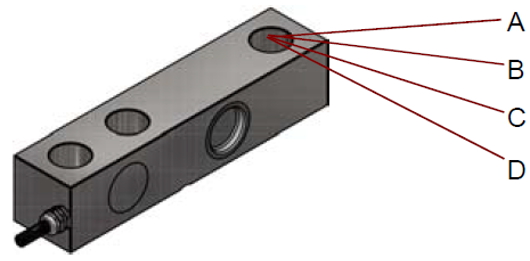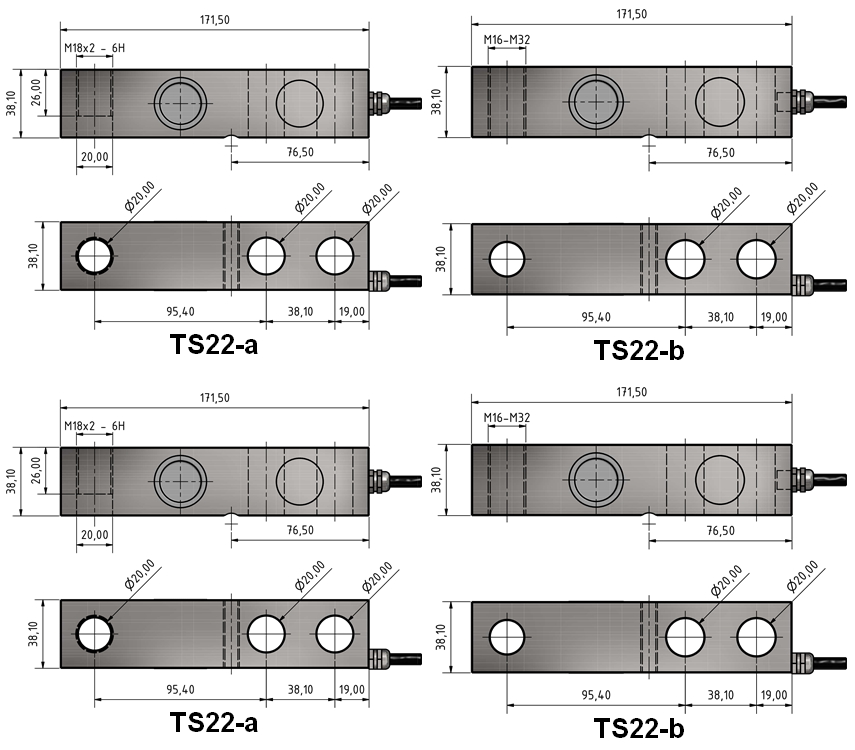Scherstab-Wägezellen für Behälter, Silos, Trichter, Lastkontrollen an Kränen, Hubsysteme mit Winden, Automationen usw.
Scherkraft-Wägezelle
C3 OIML Genehmigt
![]() Zur Vergrößerung auf das Bild klicken
Zur Vergrößerung auf das Bild klicken



| Material | Stahl / Edelstahl |
| Nennlast | 2000, 3000, 4000, 5000, 6000, 7500 kg |
| Grenzlast | 150 % F.S. |
| Bruchlast | 300 % F.S. |
| Speisespannung | Vcc 15 Max |
| Ausgangssignal | 2 mV/V |
| Ausgangstoleranz | 0,1 % F.S. |
| Nulltoleranz | 1 % F.S. |
| Linearität | 0,03 % F.S. |
| Hysterese | 0,03 % F.S. |
| Wiederholbarkeit | 0,03 % F.S. |
| Eingangswiderstand | 380-386 ohm (Option: 1050 – 1100 Ω) |
| Ausgangswiderstand | 350-353 ohm (Option: 1000 – 1005 Ω) |
| Isolationswiderstand | >= 2000 MOhm |
| Kriechfehler (30 Minuten) | 0,03 % F.S. |
| Thermische Kompensation | -10 / +40°C (14 / +104°F) |
| Betriebstemperatur | -20 / +70°C (-4° / +158°F) |
| Temperaturabweichung Nullpunkt | 0,003 % F.S. / °C |
| Temperaturabweichung Endwert | 0,002 % F.S. / °C |
| Schutzklasse | IP 68 |
| Standard Kabellänge | 5 m – 4 x 0,25 (Abschirmung nicht mit dem Gehäuse der Wägezelle verbunden) |
| Typ | GESCHIRMTES KABEL 4C R5 PUR 4X0,25 |
| Länge | 5 m (Bildschirm nicht mit dem Körper der Wägezelle verbunden) |
| Rot | + IN |
| Schwarz | - IN |
| Grün | + OUT |
| Weiß | - OUT |
General precautions to be followed in the installation and assembly of load cells: